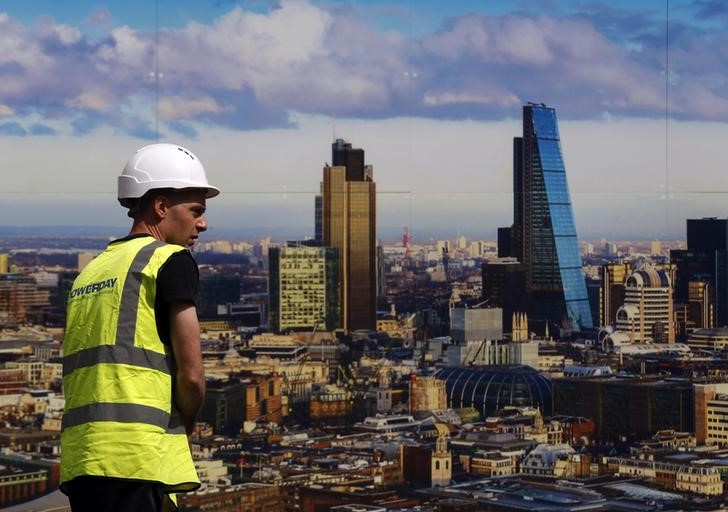LONDON (Reuters) - International investors have halted almost all their purchases of British commercial property ahead of the European Union membership referendum, a survey showed on Thursday, adding to signs that the vote is taking a toll on the economy.
The Royal Institution of Chartered Surveyors (RICS) said only five percent of its members reported increased demand from overseas investors for British commercial property in the last three months.
That was down from 36 percent almost a year ago and is the lowest reading since the survey began in 2014.
Overseas investors own a quarter of British commercial property, a share worth roughly 113 billion pounds in 2014, according to the British Property Federation.
Opinion polls have so far shown neither the 'remain' nor the 'leave' campaign emerging with a clear lead in the run-up to the June 23 referendum.
Earlier this month the Bank of England said there were signs that the referendum was denting business investment. It cited a slowdown in commercial property deals.
"At least in the short term, we know that international retailers and service providers are finding the UK market less attractive," said Simon Rubinsohn, chief economist at RICS.
Forty-three percent of RICS members thought that leaving the EU would hurt Britain's commercial property sector, compared with 6 percent who thought it would have a positive impact.
RICS does not have a view on whether it would be best for Britain to stay in the EU, it said.
Britain's residential housing market also looks set for a soft patch in the run-up to the referendum. RICS surveyors last week forecast the slowest house price growth in almost a year.
By contrast, there have been few signs that Brexit uncertainty has hurt Britain's booming car manufacturing industry, a separate report showed on Thursday.
The Society of Motor Manufacturers and Traders said 159,075 cars were manufactured in Britain during March - up 10 percent compared with a year ago and on track to hit an all-time British car production record by 2020.
Asked whether referendum uncertainty was affecting the sector, SMMT chief executive Mike Hawes pointed to announcements of investment in recent months and years, adding that the investment cycle in the car industry lasted about four years.
"We don't expect any upheaval in the short term, but the medium to long term is more uncertain," he said.

Britain's wider manufacturing sector has struggled recently and contracted sharply in the first three months of the year, according to official data on Wednesday that showed economic growth slowed at the start of 2016.